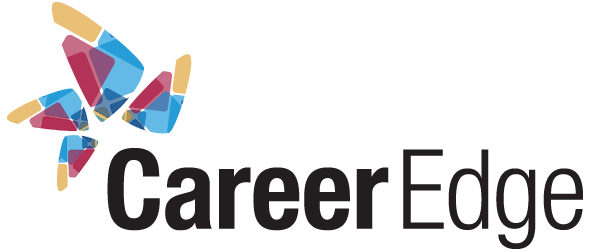Understanding your legal obligations regarding voting rights helps you maintain compliance while supporting your team’s civic engagement. This comprehensive guide will walk you through everything you need to know about time off to vote laws and how they apply to your entire workforce.
The Legal Landscape: Time Off to Vote Laws Across Canada
Voting rights are fundamental to democracy, and Canadian laws reflect this by providing protections for workers who need time to cast their ballots. Here’s what you need to know about the legal framework:
Federal Elections
Under the Canada Elections Act, employers are legally required to ensure that eligible voters have sufficient time to vote during federal elections. Specifically:
- Employees must have three consecutive hours available to vote while polls are open
- If an employee’s work schedule doesn’t allow for these three consecutive hours, employers must provide paid time off to make up the difference
- Employers cannot deduct pay or impose penalties for time taken to vote
“Many employers mistakenly believe they can choose whether to grant voting time,” explains Marcus Chen, Employment Attorney at Northstar Legal Group. “In reality, this isn’t discretionary—it’s a legal requirement that carries potential penalties for non-compliance.”
Under the Canada Elections Act, Section 132 (1) states:
“Every employee who is an elector is entitled, during voting hours on polling day, to have three consecutive hours for the purpose of casting his or her vote and, if his or her hours of work do not allow for those three consecutive hours, his or her employer shall allow the time for voting that is necessary to provide those three consecutive hours.”
Provincial Elections
Provincial voting requirements vary across Canada, but most follow similar principles to the federal regulations. For example:
- Ontario: Employees must have three consecutive hours to vote; employers must accommodate without penalty
- British Columbia: Employees are entitled to four consecutive hours free from work during voting hours
- Quebec: Employers must grant employees four consecutive hours to vote (excluding lunch hour)
- Alberta: Employees must have three consecutive hours available during polling hours
Do These Laws Apply to All Employees—Including Interns?
One of the most common questions we receive at CareerEdge is whether voting time laws apply to interns and temporary workers. The short answer is yes.
The voting rights provisions typically apply to anyone in an employment relationship, regardless of:
- Full-time, part-time, or temporary status
- Paid or unpaid positions
- Job title or level
- Length of employment
Jennifer Okafor, HR Director at Brightpath Solutions, shares: “We learned the hard way that excluding our summer interns from our voting time policy was non-compliant. All workers deserve the opportunity to exercise their democratic rights, regardless of their employment status.”
Creating a Compliant Voting Time Policy
To ensure compliance while minimizing disruption to your operations, consider implementing these best practices:
1. Know Your Specific Obligations
Review the exact requirements for your jurisdiction, as they may vary depending on:
- The type of election (federal, provincial, municipal)
- Your province or territory
- The specific voting hours in your region
2. Develop a Clear Written Policy
Create a formal policy that:
- Outlines the legal requirements
- Explains the process for requesting time off to vote
- Clarifies how time off will be scheduled
- Confirms that voting time is paid
- Explicitly includes all workers (including interns and temporary staff)
3. Communicate Proactively
Don’t wait for employees to ask about voting time:
- Send company-wide communications before elections
- Include reminders in team meetings
- Train managers on proper implementation
- Add voting information to your onboarding materials
“We’ve found that proactive communication about voting rights actually increases workforce satisfaction,” notes Patricia Mills, Chief People Officer at TechNova Inc. “It demonstrates that we respect our employees as complete individuals with civic responsibilities.”
4. Document Everything
Maintain records of:
- Your voting time policy
- Communications about voting rights
- Approved time-off requests
- Any accommodations made
Beyond Compliance: Building a Civic-Minded Culture
While legal compliance is essential, forward-thinking organizations are going beyond the minimum requirements to foster a culture that values civic engagement:
Consider Election Day Flexibility
Some companies are implementing more generous policies such as:
- Making election day a company holiday
- Implementing flexible scheduling throughout election day
- Allowing remote work to accommodate voting
- Providing extended lunch breaks for voting
“We implemented a ‘no meetings’ policy on election day and saw not only 100% voting participation but also positive feedback about feeling respected as citizens,” shares David Wong, CEO of Collaborative Networks.
Support for All Types of Civic Engagement
Expand your approach to include:
- Time for advance voting
- Support for employees serving as election workers
- Resources about registration and voting procedures
- Non-partisan information about voting locations and requirements
Lakshmi Patel, Operations Director at Community Builders Association, notes: “We’ve created a civic engagement program that includes voting support, opportunities for community involvement, and recognition for volunteer work. The result has been stronger employee loyalty and alignment with our organizational values.”
Special Considerations for Interns
Interns may need additional support to exercise their voting rights:
Awareness of Rights
Many interns—especially those in their first professional experience—may not know their legal rights regarding voting time. Make sure to:
- Explicitly include interns in your voting policy communications
- Have direct conversations with intern supervisors about accommodations
- Provide information during intern onboarding
Scheduling Flexibility
Interns often have complicated schedules balancing work, education, and other commitments:
- Consider their full range of responsibilities when planning voting time
- Offer multiple options for scheduling time off
- Remember that younger voters may be first-time voters who need more time
Creating a Positive Experience
Use voting time as an opportunity to demonstrate your organizational values:
- Avoid making interns feel that requesting voting time will reflect negatively on them
- Celebrate civic engagement as part of your culture
- Consider creating first-time voter resources
“We view supporting our interns’ voting rights as an extension of our educational mission,” explains Sophia Lee, Internship Program Director at Pacific Media Group. “We’re not just developing professional skills—we’re helping cultivate engaged citizens.”
Common Questions and Challenges
“What if an employee could vote before or after work?”
Even if alternative voting times are available, you must still comply with the legal requirement to provide the specified consecutive hours during polling time if an employee’s schedule doesn’t permit it.
“What if we have critical business needs on election day?”
Plan ahead to ensure adequate coverage while still meeting legal obligations. Consider staggering voting times, bringing in additional support, or adjusting deadlines.
“Are there exceptions for certain industries?”
While some essential services may have modified requirements, very few industries are exempt. Always check specific regulations for your sector and jurisdiction.
“What are the penalties for non-compliance?”
Penalties vary by jurisdiction but can include:
- Monetary fines (sometimes substantial)
- Legal action by affected employees
- Damage to company reputation
- Regulatory scrutiny
Conclusion: Balancing Business Needs with Civic Responsibility
Creating a workplace that supports voting rights isn’t just about legal compliance—it’s about recognizing that your employees are whole people with responsibilities as citizens. By developing clear policies, communicating effectively, and fostering a culture that values civic engagement, you can meet your legal obligations while strengthening your organizational culture.
Remember that your entire workforce—including interns, temporary workers, and part-time staff—deserves the opportunity to participate in the democratic process. By supporting their voting rights, you demonstrate a commitment to both legal compliance and respect for their citizenship.
FAQ: Time Off to Vote Laws
Q: Do I need to give employees paid time off to vote?
A: Yes, if an employee doesn’t have the legally required consecutive hours available during polling times, you must provide paid time off to make up the difference. You cannot deduct pay for time taken to vote within these legal requirements.
Q: How much notice should employees give before taking time off to vote?
A: While it’s reasonable to request advance notice for planning purposes, there’s typically no legal requirement for how much notice employees must provide. Having a clear policy that requests reasonable notice (e.g., 1-2 days) can help with scheduling.
Q: Can I specify which hours employees can take off for voting?
A: Yes, employers generally have the right to determine which hours employees can take off, as long as the legal requirement for consecutive available hours is met. This allows you to minimize business disruption while remaining compliant.
Q: What if an employee is working remotely or in a different province?
A: The voting laws of the jurisdiction where the employee physically works typically apply, not the location of your headquarters. Remote workers still have voting rights that must be accommodated.
Q: Are there any exceptions to these requirements?
A: Some transportation industry positions have specific exemptions, but these are limited. Always consult with legal counsel if you believe your industry qualifies for an exception.










